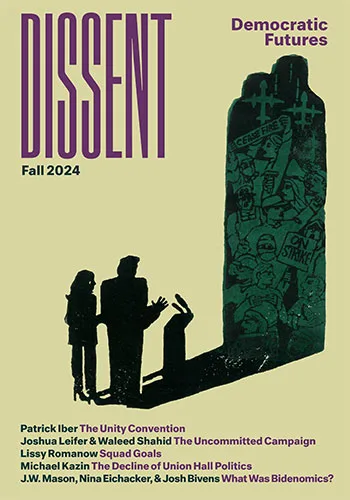
The response to COVID-19 proved that the federal government is far more capable of managing the economy than many people thought. What happens now that Bidenomics faces rising headwinds?

Discussion in the United States about secular stagnation, a long-term tendency toward weak business investment and slow growth, has mostly focused on wealthy countries. But slowing growth around the world cannot be explained as the sign of economic “maturity.”

In Freedom from the Market, Mike Konczal turns to a usable American past to explain how we can build a society free from want and market dependence.

The Trump administration appears ready to invoke the Defense Production Act to speed manufacture of essential goods like face masks. What if we didn’t have to resort to the analog of war?

Economists Posner and Weyl’s book Radical Markets attempts to make sense of the current moment and propose a way out, but their unorthodox proposals come up short.

If there’s one thing worth taking away from the White House report on socialism, it’s that economics is a political argument, not just a technical exercise.

Heather Ann Thompson, author of Blood in the Water: The Attica Prison Uprising of 1971 and Its Legacy, discusses the uprising and the current wave of prison strikes.

An interview with Christopher Phelps, co-author with Howard Brick of Radicals in America: The U.S. Left since the Second World War.

The popular 2014 film Pride neatly dramatizes how queer–labor solidarity during the miners’ strike pushed back against Margaret Thatcher’s combination of social conservatism and market nihilism.

“The owl of Minerva,” Hegel famously wrote, “flies only at dusk”: historical events can be theoretically comprehended only in retrospect. Is this the case with neoliberalism? A term ubiquitous in the academy but scarcely used outside it, the concept is difficult to define with precision. Two recent books attempt to describe neoliberalism’s historical origins and explore its current political implications.
I’m sometimes asked if Florida is in the South. Well, it’s a big state, I’ll usually say, and regional boundaries are never well defined. This summer, though, the headlines suggested some new reasons to answer the question in the affirmative. …















